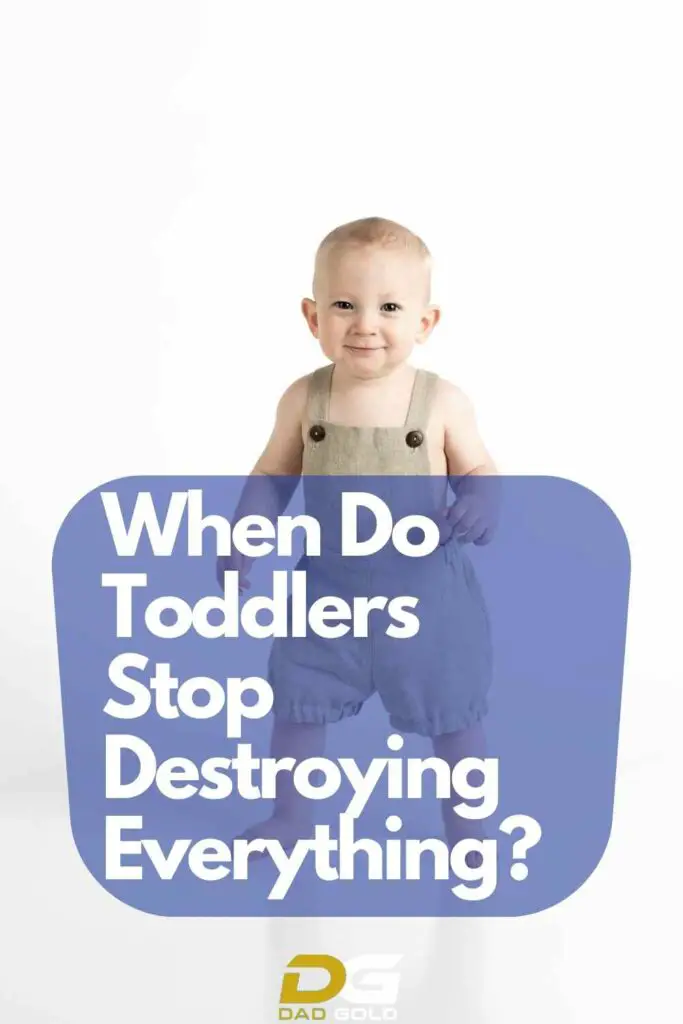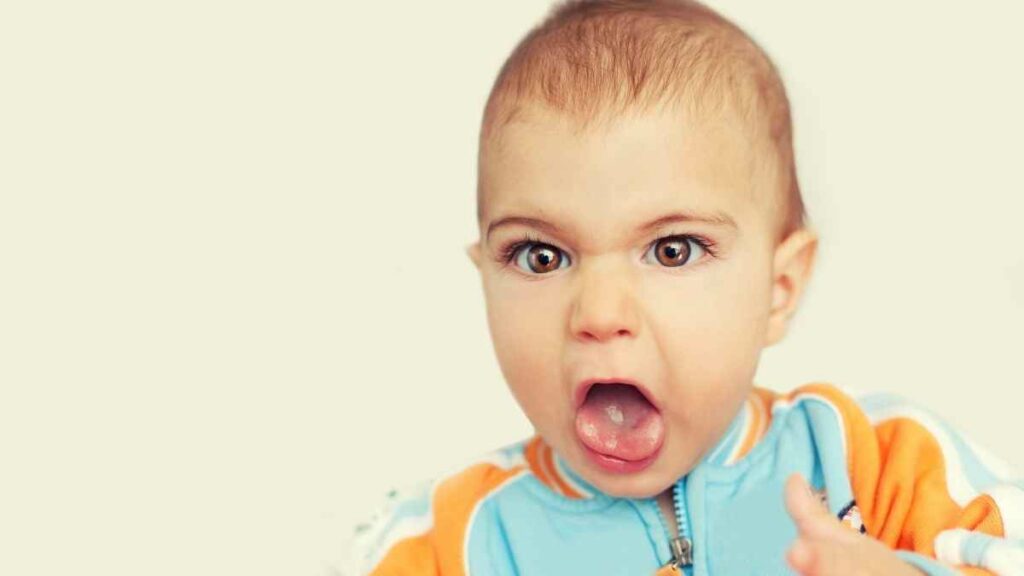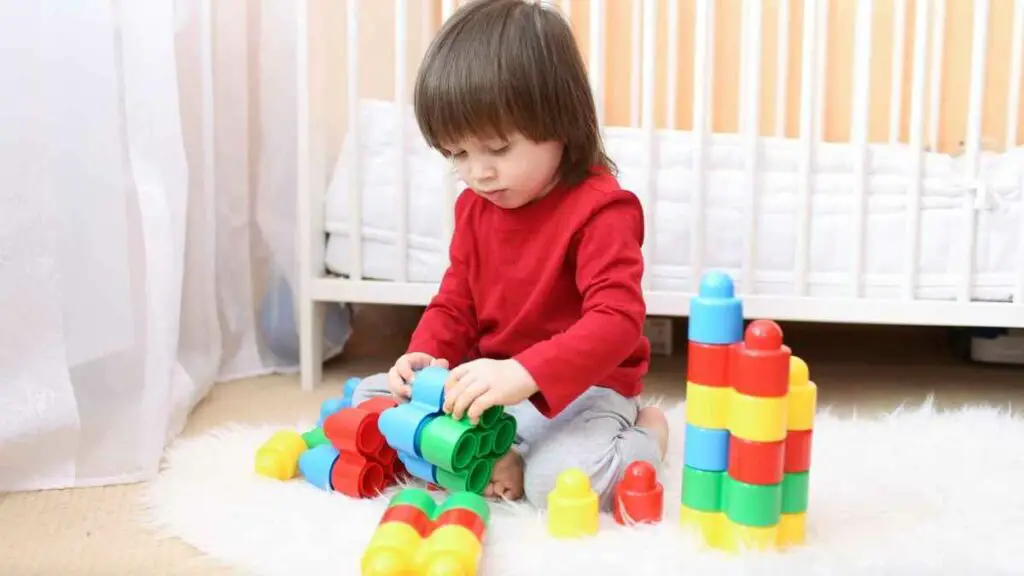Is there an end to ‘toddlers throwing and breaking things in the house? YES!
It is common to see a protesting toddler throwing things around, breaking some in the process. But do they always have to be like that?
Your toddlers don’t have to be destructive, and if they already are, there are ways you can stop them from destroying objects or throwing just about anything in the house.
Whether your kids break things just for fun or to express their emotions, you can always stop the breaking action and make them more expressive.
However, before discussing how to stop your toddlers from throwing things, let’s briefly explain destructive play.

Is it Normal for Toddlers to Break Things?
While it may be disturbing for you as a parent to watch your toddlers intentionally drop/break things in the house, the act – which some call destructive play – may not be entirely terrible.
This is because some of these activities contribute to the toddler’s learning process. Some of these activities can even help develop and nurture your kids’ fine motor skills, gross motor skills, and problem-solving skills.
Nevertheless, a destructive kid is a menace and needs looking into because some of these kids do so out of frustration and a strong desire to be heard.
-

Bold Male Pride – Baseball Trucker Cap Celebrating Masculinity
£18.00 Select options This product has multiple variants. The options may be chosen on the product page -

Dad Bod Appreciation Gift Mug
£14.00 Add to cart -

Dad Bod, Bad Jokes Structured Baseball Cap
£22.00 Select options This product has multiple variants. The options may be chosen on the product page
So, you need to know the difference, which brings us to the next section, why toddlers destroy things in the house.
Five Reasons Toddlers Destroy Things in the House.

Here are some of the reasons your toddlers destroy things in the house;
To get your attention.
You may not know it, but your toddlers crave your attention. And since they tell you that, what better way to get your attention than drop and break things?
It is easy to get engrossed in activities (calls, house chores, cooking, etc.) and, without meaning to, neglect your toddlers momentarily. Unfortunately, toddlers tend to pick up on this neglect and feel left out.
Therefore, toddlers throw their toys, plastic bricks, plastic bowls, appliances, or anything they can find to get your attention and feel involved again.
And before you fault the child for doing it, ask yourself, “does it work?” Oh yes, it does because you quickly snap out of whatever work you’re doing and look in the child’s direction when they break things.
To imitate scenes that they have witnessed.
One of the key ways through which children cultivate habits is imitation. Toddlers imitate anything they see happening around them repeatedly.
This is why you should beware of using swear words around toddlers. The same goes for the movies or shows you allow them to watch on TV.
There is a reason movies/shows are rated. When kids repeatedly see violence in movies and want to imitate it, they throw objects around the same way it is done in the movies.
So, the more the child is exposed to violence, the more destructive the child tends to be.
To dare you
Most toddlers are daring! Your anger and rebukes aggravate their mischief tendency. And since you’re constantly telling them to STOP throwing objects, they throw them to see what you will do.
Toddlers usually follow their guts; more often than not, all their guts tell them is “NO!” So, it is only expected that they will defy your instructions and see if they will get away with it.
To express their emotion/ frustration.
Overwhelming, anger, sadness, and other emotions are major issues among adults. So, what makes you think toddlers aren’t battling these emotions too?
When they’re excited, you see them all smiley and active. Similarly, toddlers find other ways to express their sad feelings, including dropping and breaking objects and making a big mess.
This mode of expression is common when toddlers have not been taught better ways to handle their emotions. Here are some books to help your toddler with emotions.
Just for fun and entertainment
You must have seen toddlers burst into a hearty laugh or cackle after smashing or destroying an object (your phone, maybe); it means they find it funny and see nothing wrong.
Sometimes, kids find the smashing sound funny and exciting. And they keep throwing everything to make the sound that amuses them so much.
Overall, it is usually at your cost as a parent/guardian whenever toddlers destroy objects. Thus, you must address it. The next section contains helpful tips to stop a toddler from ‘smashing.’
Nine simple and practical ways to stop a toddler from breaking things

It is good to know ‘why’ toddlers tend to be destructive. But, do you want to know what is better? Knowing ‘how’ to stop them. Below you have some tips to prevent toddlers from destroying things;
Put away items that toddlers can destroy.
This is more of a cautionary move. When you keep every item toddlers can break out of their reach, they have nothing to throw.
No objects, no problem. So, the next time your toddlers are alone in the playroom or the TV room, try to remove all ‘break-ables’ from sight.
Use distractions to your advantage.
Although distractions can make parenting considerably tricky, sometimes, if used right, distractions and redirections can help you prevent your toddlers from destroying objects.
For example, whenever your kids are about to throw a tantrum and begin throwing everything in sight, putting on their favorite shows or bringing out their favorite toys can be a good idea.
You can see these as good distractions that help you prevent a potential disaster.
Praise good conduct.
Even adults love good praise! So always encourage toddlers, especially when they are of good conduct. Praising them shows that you approve of what they are doing.
That will remind them whenever they are about to start a messy play, and you rebuke them. Since you praise a toddler’s good acts, s/he immediately realizes what they did or are about to do is wrong.
Be good examples to them.
By now, you already know how toddlers are great imitators, so take advantage of that and model good examples to them. For example, chances are high that toddlers will throw things when angry if you, as their parents, do the same.
Hence, it is expedient to rein back on how you express your anger, and your kids will follow suit.
Keep your voice calm and firm.
Yelling at an angry toddler is like adding fuel to the fire; your actions will only aggravate them the more. So, avoid yelling at your kids when addressing them, as they only do the opposite of what you want.
Instead, try to come down to the child’s level and speak calmly. However, as much as you maintain a calm voice and keep your cool, your voice must be firm. That is, the kids must be able to know that you are not joking.
Regulate their TV shows (Avoid violent scenes).
Another step to stop your toddlers from destroying things is to regulate their TV shows – mainly shows depicting violence.
If toddlers stop seeing people in TV shows expressing anger by destroying things, they will also cut back on the act.
Teach them better ways to manage anger.
Here’s where you need to teach your kids anger management skills. First, teach them not to deny their emotions. Instead, teach them to find better and more beneficial ways to express their feelings.
Also, you should employ anger rules to enforce the lessons you teach them. For instance, you create written rules on these ‘smashing’ activities and add penalties for doing any of them.
Show them the consequences of their actions.
Now, you don’t expect to see your toddlers change overnight. They may still break things once in a while, even after you’ve taught them to manage their emotions better.
What do you do? If you have written rules, exact the penance of such behavior. For example, you may seize their toys for a while or keep them from watching their favorite shows to show them that there are consequences to their actions.
Give them a chance to unwind outdoors.
Finally, this may sound uncalled for, but it can be helpful to give your toddlers a chance to break/throw things outdoors.
Just that this time, they will do the throwing under supervision, and it will be outdoors. So, nothing will be destroyed.
Conclusion
Follow the above steps; your toddlers will break things less and stop altogether with time.
Good luck!

